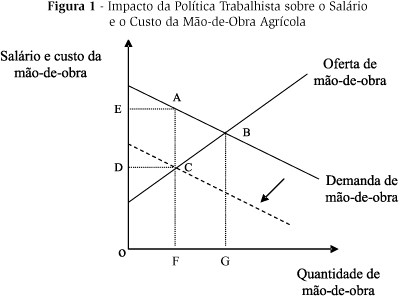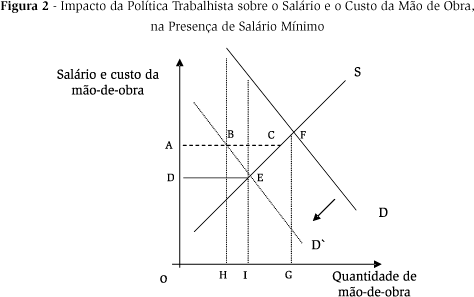This paper discusses the question of the concentrated pattern of agricultural development in Brazil, as expressed in the predominance of large-scale production, high level of mechanization and low absorption of non-qualified labor. It is proposed, initially, the existence of two conflicting explanations for this fact: the first, that blames our historical heritage, characterized by the predominance of the latifundio, and the second, that sees in this fact a technological determinism, with the implication that lesser concentration in agriculture would involve a loss of economic efficiency. This paper, however, attributes to the labor, land and credit policies directed to agriculture, instituted in the decade of 1960, the major responsibility for this problem. As the analysis shows, these policies turned unviable the agricultural temporary labor market and family farm, at the same time that they stimulated agricultural mechanization and large-scale production. The paper ends up proposing a deregulation both of agricultural labor and land markets, as well as a drastic reduction in the subsidized agricultural credit.
Agricultural labor policy; Land tenure policy; Agricultural credit policy; Mechanization. Poverty in Brazil


